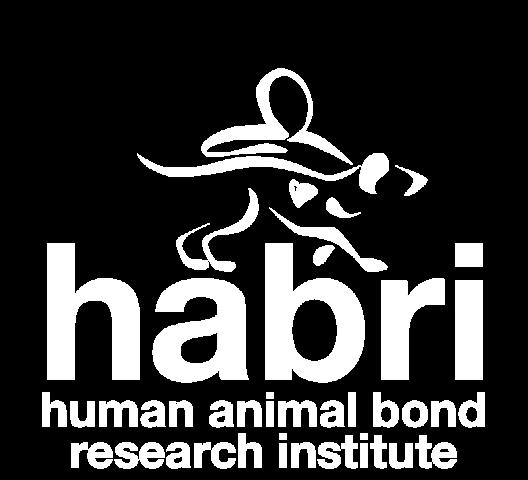HEALTHY PETS, HEALTHY COMMUNITIES
A Report by the Human Animal Bond Research Institute
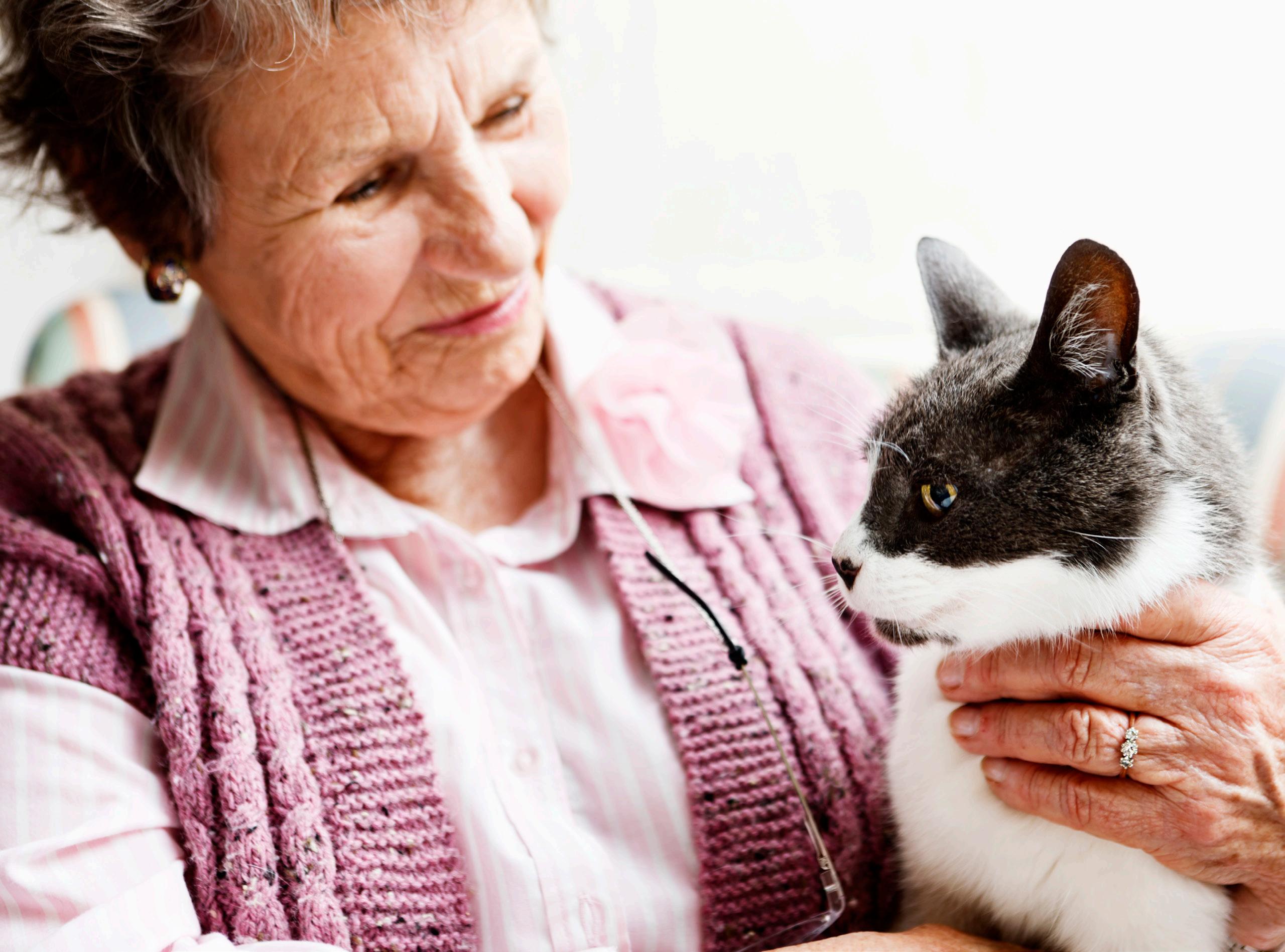


By Steven Feldman, President, Human Animal Bond Research Institute

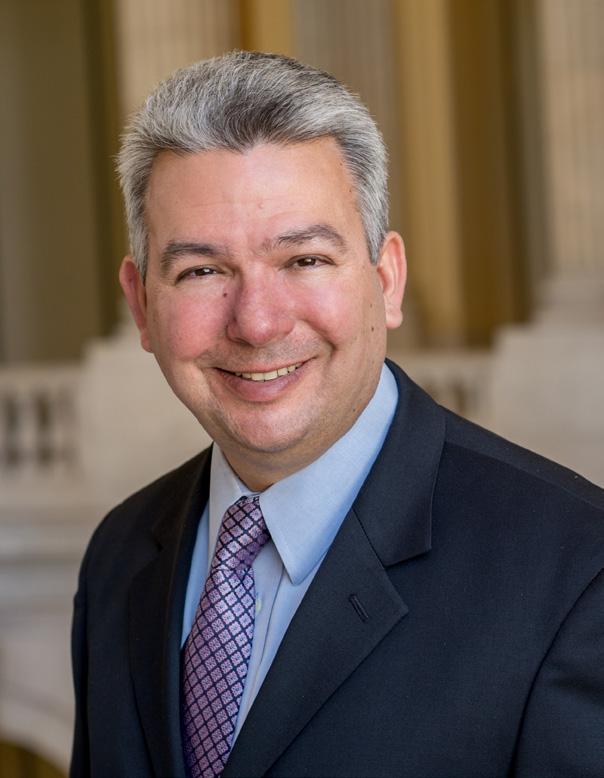
The Human Animal Bond Research Institute (HABRI) offers this report as a roadmap for those who understand the power of the humananimal bond and are eager to work together to help both people and companion animals realize its full potential in society.
The report summarizes the proceedings, key takeaways and future actions from the 2025 HABRI Spring Policy Forum. This event convened experts from across the pet care community, social services, housing, and policymaking to identify challenges, share model practices, and advance policy solutions to better support pet ownership and the human-animal bond for underserved populations. By advancing research, sharing knowledge, and fostering partnerships, we can shape a world where everyone, regardless of cultural differences or socioeconomic circumstances, can benefit from the love and support of companion animals.
HABRI is grateful to the sponsors and partners who supported this forum. The expertise and collaborative spirit of all involved was inspiring, and we have attempted to capture both the important data and the positive energy from the forum in these pages. We look forward to building on these important conversations to turn ideas into action for a more equitable and petinclusive future.
By Dr. Kwane Stewart

For years, I dreamt of being a veterinarian, envisioning a life of impact. Yet, there was a time, not so long ago, when the weight of the work, as a shelter veterinarian, nearly broke me. I was on the brink of walking away from it all, but fate, or perhaps more simply a moment of humanity, intervened.
I saw an unhoused man and his dog, suffering from severe flea allergic dermatitis. I engaged him in conversation and after a few days of a $3 flea treatment I gave him, I saw not only a dog who had been transformed, but a new way forward for me and my career. When that man looked at me with tears and said, “Thank you for not ignoring me,” it was day one of “The Street Vet.”
That moment crystallized a core philosophy: No judgment, just help. I learned that the stigma often attached to the unhoused is unfair and profoundly untrue. These individuals, often with nothing else in the world, hold the most incredible, irreplaceable bonds with their pets. Their animals are not just companions; they are lifelines, sources of comfort and reasons to keep going. I’ve seen it firsthand: the veteran who would go without food to ensure his dogs ate. The woman whose pet quite literally saved her from taking her own life. These stories underscore the immense value these animals bring to their owners and to our communities, no matter where they are or what they look like.
My program’s objective is simple yet powerful: to extend accessible, compassionate veterinary care to those who need it most. This isn’t just about treating an ailment, it’s about validating the human-animal bond, preserving a family and providing hope. It has led me to see, time and again, how a renewed sense of dignity can affect a person.
It has brought me to all corners of this country, working to make street medicine a recognized and valued part of veterinary practice, ensuring that this vital connection between humans and animals is supported for everyone.
I believe in the power of sharing and going through life with an open heart. And so, it is from this place that I invite you to join me as we look back on the Human Animal Bond Research Institute’s Spring Policy Forum and to understand what it truly means to look out for each other, to believe in each other and to help one another through the extraordinary bond we share with our pets.
What became increasingly clear from the vibrant discussions at the HABRI Spring Policy Forum is that pet ownership is a significant contributor to public health and has the potential to become even more so. Ensuring access to companion animals and the ability to care for them boosts mental health and creates a healthier society overall.
The Human Animal Bond Research Institute (HABRI) is a not-for-profit organization that funds innovative scientific research to document the health benefits of companion animals. Our mission is to advance, through science, education and advocacy, the vital role of the human-animal bond in the health and well-being of people, pets, cultures and communities.
The forum served as a springboard for conversation, collaboration and action. Bringing together professionals from across disciplines to explore how barriers to pet ownership and care prevent many underserved individuals and families from experiencing the profound physical, mental and social-emotional benefits of pets, experts discussed efforts to build healthier, more equitable communities.
The event was organized into three sections:
1. Understanding Barriers to Pet Ownership and Care
2. Integrating Pet Care and Human Social Services
3. Advancing Solutions for Pet Families
This report summarizes the findings from the HABRI Spring Policy Forum, sharing how research and data serve as the foundation for advancing model practices and programs relating to pets and mental and physical health, and underscores the importance of policies that support the humananimal bond.
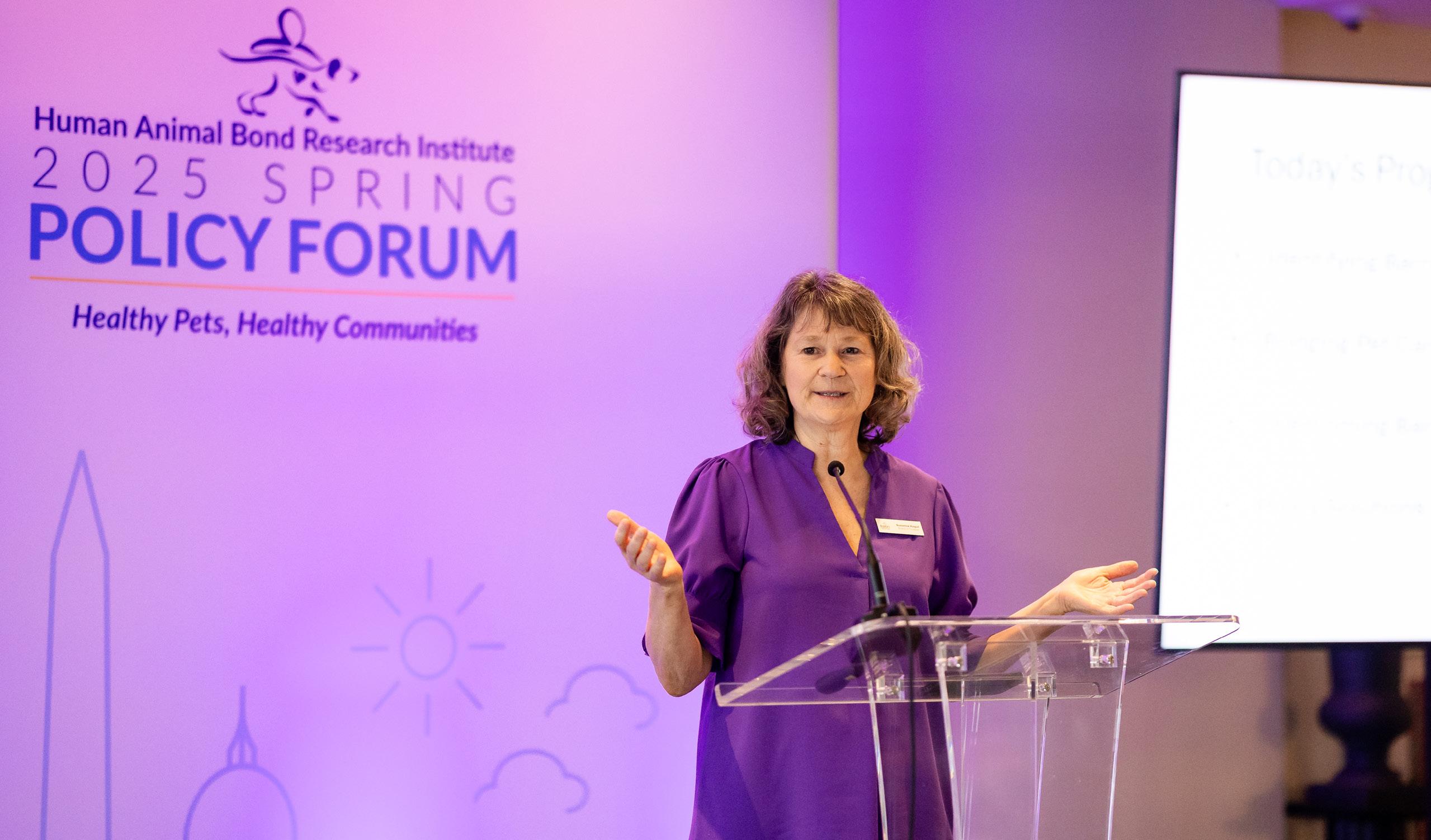
Improving access to pet care and strengthening the human-animal bond begins with a clear understanding of the obstacles that stand in the way. Before solutions can be designed, we must listen to the lived experiences of current and future pet owners across a wide range of communities.
Speakers opened the conversation by sharing insights from the Gallup State of Pet Care Study¹, which highlighted the systemic and situational barriers many people face regarding accessible pet ownership and care. From challenges in acquiring a pet to the difficulties of keeping one, the findings underscored the complexity of pet-related inequities. The discussion emphasized the need for culturally responsive and community-specific approaches, recognizing that meaningful solutions must reflect the unique priorities and realities of the people they aim to serve.
Robyn Jaynes, DVM, director, veterinary affairs with PetSmart Charities, introduced the Gallup State of Pet Care Study. With limited existing research on the scale and nuance of access-to-care issues, the study was designed to capture pet owners’ real-life experiences navigating veterinary care.
The goal of the study was to generate insights that can drive meaningful, industry-wide change. By listening directly to pet parents and identifying the barriers they face, the study aims to guide the development of more affordable, flexible and accessible models of care. Ultimately, by sharing this data openly, the hope is to foster greater collaboration and shared purpose across the veterinary field.

Director, Veterinary
Zach Hrynowski, senior researcher with Gallup, presented the key findings of the study, outlined below.
More than half of pet owners have forgone veterinary care or declined recommended care.
• About 7 in 10 of those who have skipped or declined care cite financial reasons.
• Nearly three-quarters of pet owners who declined care due to cost were not offered a lower-cost option; less than half who say the care was impractical were offered an alternative.
Pet owners’ income influences whether affordability or value is the primary financial consideration in skipping care.
• 81% of pet owners consult a veterinarian for information on their pet’s health, and nearly half of owners consult online resources.
Those who find it most difficult to access care are also the most likely to only seek information about their pet’s health from nonveterinary sources.
• Nearly a third of Black or African American pet owners indicated they were likely to seek information about their pet’s health from non-veterinary sources.
• 30% of those with a household income less than $36,000 also indicated they only consult non-veterinary resources when they have needed information about their pet’s health.
Nearly 4 in 10 pet owners express interest in utilizing non-traditional veterinary care options such as community clinics, home visits, telephone or video appointments with a veterinarian.
James Evans, CEO of Companions and Animals for Reform and Equity (CARE), delivered a powerful message on the need to reframe how we think about access to pet ownership and care, particularly in marginalized communities. He outlined the many barriers that prevent individuals from obtaining pets and keeping them healthy and safe over time. These include structural issues such as adoption restrictions, limited pet-inclusive housing and rigid definitions of “responsible pet ownership” that often exclude families with fewer resources.

Once pets are in the home, additional challenges arise, including affording food, accessing transportation, finding trustworthy information and paying for veterinary services. These barriers are often compounded in underserved communities, where historic underinvestment and systemic inequities have created deep gaps in infrastructure and essential services.
Evans emphasized that lasting change requires culturally responsive solutions that move from punishment to support. He called for a shift toward community-driven care models—ones that honor lived experience and promote mutual aid, preventive wellness and inclusive workforce pathways. This includes creating permanent low-cost clinics in neighborhoods or offering recurring care events, increasing access to pet wellness information and recruiting veterinary professionals from within the communities they serve.
Community Based Participatory Research (CBPR) involves research partnerships with people with lived experience in the community, in every step of the research process. CARE begins by partnering with proximate leaders, often starting with individuals from the community that are hired on staff - and then they expand by partnering with folks on the ground, including individuals from community based organizations and small, BIPOC-led groups. These individuals and organizations then collaborate with CARE to define the entire project and process, from defining what the research questions are to how the data is collected. The CBPR approach allows CARE to be with the community, of the community, from the community and gain comprehensive insights from populations that are not always captured in large national studies and assessments due to barriers of technology, time or traditional outreach methodologies.
By investing in initiatives like Vet REDI, Vet for a Day and scholarship programs, and supporting the roles of veterinary technicians and veterinary professional assistants, we can expand the reach of care and build trust. His vision calls on the industry to meet people where they are—with empathy, partnership and a commitment to equity.
As evidenced by the Gallup State of Pet Care Study, barriers to pet ownership and care are directly connected with broader social and economic inequities. Financial strain, lack of alternative options, limited access to reliable information and housing restrictions contribute to a cycle that leaves many families unable to fully experience the benefits of the human-animal bond.
At the same time, innovative organizations like CARE, along with the unique perspectives of CARE and Dr. Kwane Stewart through The Street Vet Initiative shed light on the opportunities to shift the narrative from judgment and exclusion to empathy, accessibility and equity. By listening to lived experiences, investing in community-driven models of research and care, and ensuring that solutions are culturally responsive and inclusive, organizations in the pet space can begin to dismantle systemic barriers.
Understanding these challenges is a critical first step. The path forward requires collaboration, innovation and a commitment to meeting people where they are, so that all families–regardless of income, race or background–can enjoy the many benefits that animals bring to their lives.
The healing power of the human-animal bond is universal. While pet owners across cultures, communities and backgrounds experience the human-animal bond in similar ways, the challenges and barriers pet owners face may vary tremendously. Organizations like the Arizona Pet Project and Meals on Wheels America exist to support the care needs of both pets and their people. Each of these two organizations understands the importance of connecting human services with animal services, and how this connection ensures that those they serve can care for themselves and their animal companions, preserving the human-animal bond.
The historic disconnect between human services and animal welfare created a middle ground in which people and pets are in crisis. Leanna Taylor, CEO, Arizona Pet Project (AZPP), shared compelling data, visuals and first-hand experiences which showed the true impacts of bridging the gap between human social services and animal care.
The organization, which focuses on community-wide human services with a pet focus, has evolved tremendously since its founding in 2001 as an animal shelter. The organization experienced a pivotal shift in 2015 with the launch of a full-service shelter intervention program and subsequent hiring of the first social worker embedded at the Maricopa County Animal Care and Control. This move marked the beginning of a broader vision of addressing the complex challenges facing pet owners in crisis and improving and saving the lives of both people and pets in their community.
Arizona Pet Project’s work is centered in Maricopa County, Arizona, a region encompassing 1.7 million households, of which more than 1.1 million include at least one pet. Socioeconomic challenges compound the urgency of their mission: 21% of households live below the federal poverty line, and another 40% live below 200% of that line. With over 87,000 evictions2 annually, the highest rate in the nation, families in crisis in Maricopa County are often forced to choose between housing and their pets.
To ensure fewer families face these choices, collaboration among community groups is key, as meeting the unique needs of the population requires diverse expertise. For example, the needs of an isolated senior differ from the needs of a veteran or a person who is unhoused. Having various points of entry into the system of care for individuals, through human service organizations, health care support or pet-focused shelters, creates the opportunity for overlap in data and social systems and helps bridge gaps between care. A central tenet of AZPP’s work is meeting human service agencies where they are and recognizing that most experience high turnover, are overwhelmed and underfunded, while also working in systems not designed for pet-inclusive care. The Arizona Pet Project does not approach these agencies with prescriptive solutions. Rather, they begin by listening, building trust and co-developing programs that align with agency priorities.
This trust-building starts with referrals, shared case conferencing and clear respect for each agency’s workflow. It expands into policy conversations to incorporate animals into their care plans once relationships are well established. The results of this steady approach have spread throughout Arizona and also serve as a model for others, encouraging shelters in other states to integrate with human social agencies and services.
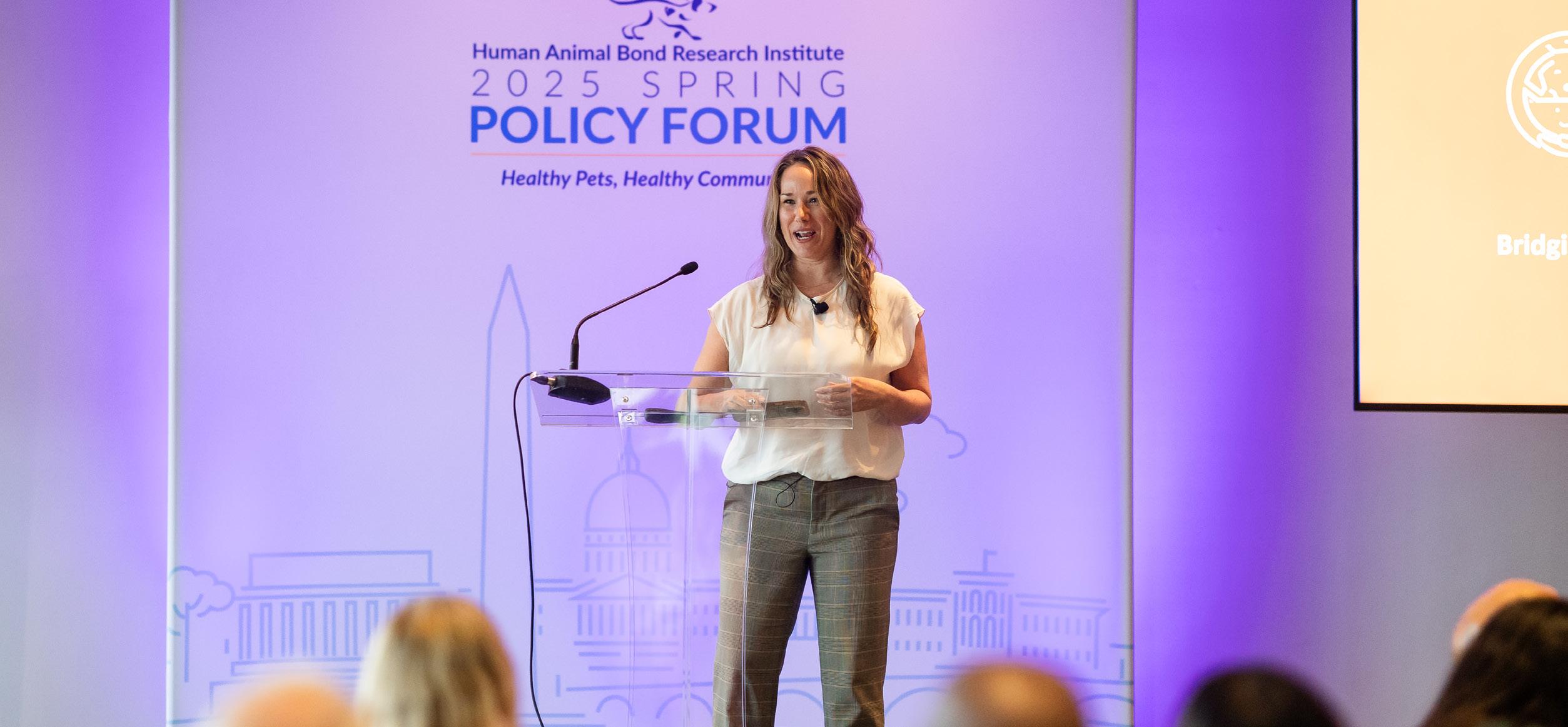
The Arizona Pet Project is also engaged in driving structural, system-wide change through formal partnerships, coalition-building and data alignment. The organization has found that beyond the lack of specific support for pet care, housing instability correlates to a significant number of uncaptured factors, including a lack of access to veterinary services. By addressing disconnects between policies, unique family lifestyles and recognizing pets as factors across social determinants of health, they have repositioned the conversation from animal welfare to wholeperson and whole-family care.
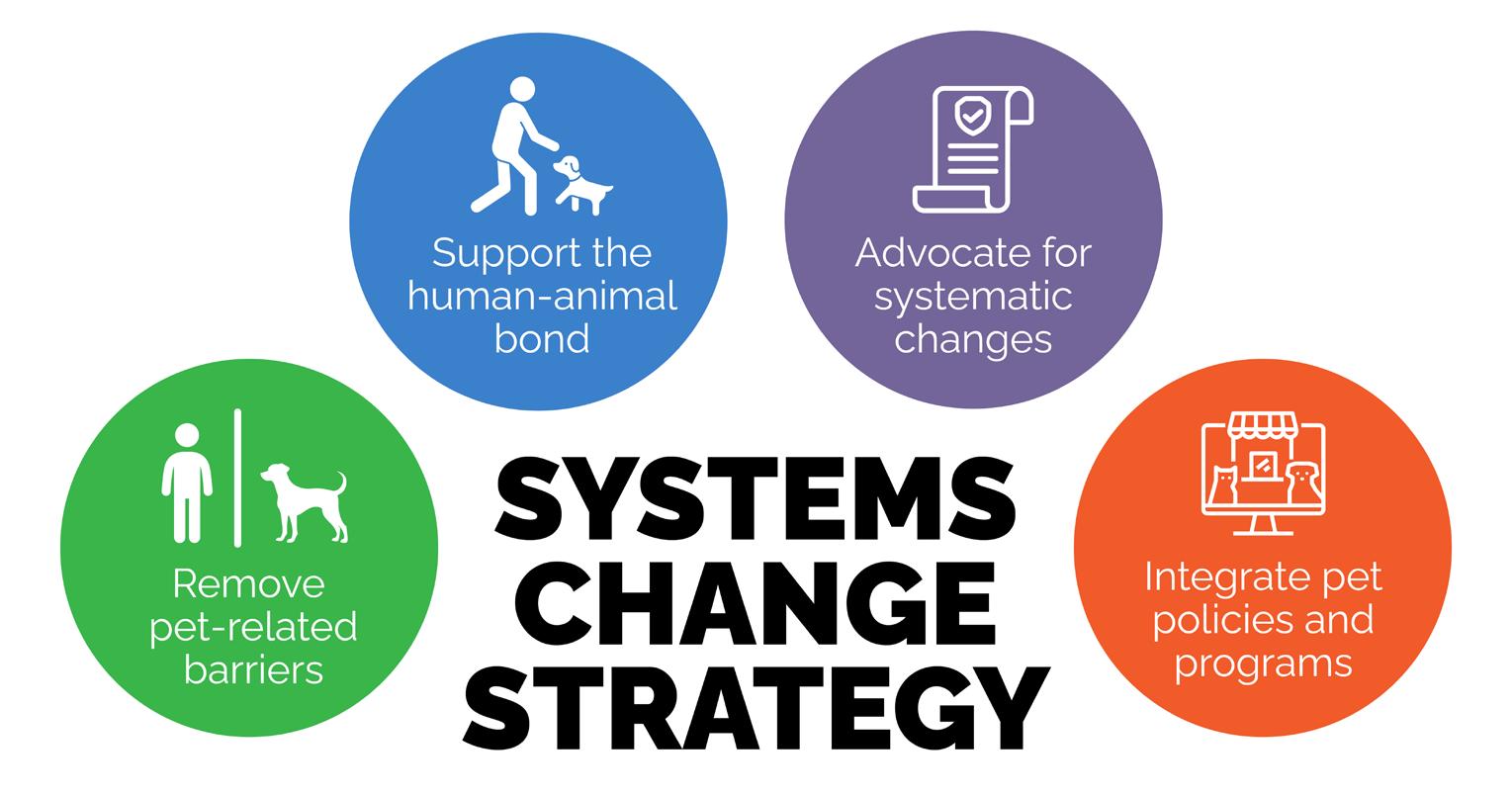
1. Remove pet-related barriers to accessing human care for low-income, vulnerable and disproportionately impacted individuals and households across Arizona.
2. Support the human-animal bond, which is shown to provide crucial social, emotional and physical benefits to individuals, particularly those most vulnerable, at-risk or isolated.
3. Advocate for systemic changes in federal, state and local policies to increase access to care and recognize the importance of pets as factors across the social determinants of health.
4. Integrate pet policies and programs into social service agencies across Arizona.
This reframing has had profound funding implications for AZPP, with direct animal welfare funding now making up a small percentage of the budget. Because the narrative revolves around the whole person, the organization has successfully received grants from the Department of Housing, Veteran Services, Arizona Department of Economic Security and others.
Data collection played a key role in this pivot. The team recognized that animal welfare software does not sufficiently capture human-related data, and similarly, there is a dearth of information regarding pets within human services data. To fill this gap, they began asking clients questions surrounding the individual’s experiences with accessing services such as veterinary care, housing assistance and temporary boarding, as a complement to their own medical treatment.
Two questions in particular related to their concerns about their ability to pay rent over the next six months and whether they’d use rent money to pay for veterinary care were especially critical in revealing opportunities to better support vulnerable clients and remove barriers to care. Responses allowed them to demonstrate that veterinary costs can be a destabilizing factor for this population, increasing the likelihood of eviction or homelessness — a connection that resonates with funders focused on housing.
Their work also led to a groundbreaking development of Arizona’s Medicaid program, which formally recognized pets as a factor in social determinants of health. This opens the door to potential reimbursement for case management and pet-related expenses under Medicaid, a policy milestone with national implications.
In 2025, the Arizona Pet Project launched the Arizona Coalition for People and Pets to advance a statewide movement for pet-inclusive policy and programming. The Coalition advocates for systemic changes that remove barriers to care and embrace the human-animal bond’s essential role in the health and well-being of individuals, families, cultures and communities.
Core initiatives include:
• Advocating for legislation that reflects the interconnected realities of people and pets.
• Providing resources, mentorships and model policies to social service agencies seeking to integrate pet-inclusive practices.
• Creating cross-sector alliances that extend beyond animal welfare into housing, healthcare, veteran services and behavioral health.
As one example, the coalition secured funding from MercyCare, Arizona’s largest Medicaid provider, after demonstrating the healthcare cost savings of pet-inclusive interventions.
Through building trust and deploying creative strategies, the Arizona Pet Project has reshaped the standard of care and collaboration between human health services and animal welfare. What began as a single social worker embedded in an animal shelter has evolved into a statewide model with five social workers supporting case managers and clients across Arizona. The success of AZPP demonstrates an effective approach to integrating human service systems with pet-inclusive policies to deliver truly comprehensive human care.
Meals on Wheels America is a national leadership organization supporting more than 5,000 community-based programs across the country, dedicated to addressing senior hunger and isolation. Laura Belazis, senior director of strategy and impact, shared how the Meals on Wheels America programs and affiliate work is advancing pet-inclusive human services.
Contrary to its perception as a simple food delivery service, Meals on Wheels volunteers provide consistent, compassionate care that extends far beyond nutrition. Drivers are trained to notice changes in a client’s condition, identify hazards in the home and respond to emergencies, and are often the only person the recipient sees that day or even that week. This consistent, reliable presence builds deep trust, positioning volunteers as a vital link to other support services.
As stated previously, Meals on Wheels programs directly address two of the most pressing issues facing older adults: hunger and isolation. More than half of their clients live alone and one in three experience loneliness. Social isolation, characterized by a lack of social connection, is associated with an increased risk for heart disease, stroke, dementia and premature death.³ Emphasized in the 2023 Surgeon General’s Advisory on Loneliness,⁴ social connection is a basic human need equivalent to that of food and shelter. For many older adults, pets are the primary, or only, source of companionship and social support.
Recognizing the integral role pets play in the lives of older adults and driven by volunteers noticing clients sharing food with their pets, sacrificing their own nutrition, Meals on Wheels America launched the Meals on Wheels Loves Pets initiative. A national survey funded by PetSmart Charities of Meals on Wheels clients⁵ revealed that more than one in five reported going without food themselves to feed their pets, and nearly a third had gone without necessities such as medical care, paying bills and utilities to provide for their pet.

Nearly 44% of Meals on Wheels member programs now offer some form of pet support, a number that has grown significantly in recent years through the help of strategic partnerships. Further, 77% of respondents cited that they currently need or have needed assistance providing food for their pets. Many of the seniors the organization serves are homebound and don’t have resources they can regularly rely on.
The survey also discovered that beyond nutrition and in-home care, the primary barriers to accessing veterinary care are cost and transportation. Among Meals on Wheels clients, 45% were unable to get preventive care for their pets, while 22% were unable to get sick or emergency care for their pets.
³ Cené, C. W., Beckie, T. M., Sims, M., Suglia, S. F., Aggarwal, B., Moise, N., ... & McCullough, L. D. (2022). Effects of objective and perceived social isolation on cardiovascular and brain health: a scientific statement from the American Heart Association. Journal of the American Heart Association, 11(16), e026493.
⁴ Office of the Surgeon General (OSG). Our Epidemic of Loneliness and Isolation: The U.S. Surgeon General’s Advisory on the Healing Effects of Social Connection and Community [Internet]. Washington (DC): US Department of Health and Human Services; 2023–. PMID: 37792968.
⁵ Meals on Wheels America Pet Programming and Client Needs Assessment, June 2021. https://www.mealsonwheelsamerica.org/wp-content/uploads/2021/06/pet-programming-and-client-needs-assessment_final-report-1.pdf.
Services provided have a profound impact, with 97% of clients reporting that the support from Meals on Wheels makes it possible to keep their pet. The pet programs vary by community, but often include:
• Pet food and supply delivery
• Access to veterinary care
• Transportation to appointments
• Grooming and nail trimming
• Temporary pet boarding
By supporting seniors and their pets, Meals on Wheels strengthens families and communities, improves quality of life and prevents unnecessary hospitalizations. Yet, the demand for these services still outweighs available resources. One in three Meals on Wheels programs has a waitlist, and federal funding has not kept pace with demand. Only 1% of all philanthropic dollars in the U.S. support senior causes, making private and public partnerships more critical than ever.
Meals on Wheels continues to partner with humane societies, animal shelters, veterinary colleges and veterinary medical associations, along with growing collaborations with groomers, veterinary offices and local supply and feed stores. Since 2020, this network has distributed $4 million in funding and pet food donations to over 260 local programs across the nation, providing nearly 2.5 million pounds of pet food to 47,000 seniors and their 73,000 pets.
These collaborations ensure the sustainability and scalability of pet support services, empowering older adults to remain safely at home with the pets they love.
The impact of the Arizona Pet Project and Meals on Wheels pet programming demonstrates that supporting the human-animal bond is an essential part of providing effective person-centered care. When pet services are integrated into existing human service frameworks, the full context of people’s lives is acknowledged and supported. For many, pets are not just companions – they are family, safety nets and sources of purpose, comfort and support. Bridging the gap between human and pet services doesn’t require building new systems from scratch, but rather integrating compassionate, practical solutions into the services people already trust. These programs lead the way in setting an example for others, highlighting that when we care for people and their pets together, we strengthen the health and resilience of entire communities.
At HABRI, we believe pet ownership should be an equitable right for all. The unfortunate reality is that systemic barriers prevail which limit the ability of certain populations from acquiring and keeping pets. Pets are often left out of the equation when it comes to accessing and navigating health, housing and public transportation systems. The consequence of this reality adversely affects families, communities and animal welfare. The solution is for systems to adapt and recognize pets as an integral part of individual and family health.
When speaking about advancing equity in pet-inclusive care, Dr. Michael Blackwell, Director of the Program for Pet Health Equity at the University of Tennessee and founder of AlignCare, posed a critical question: how much of a barrier are we?
Professionals are shaped by institutions, language and legacy systems, and often operate within invisible constraints that were never designed with today’s interconnected realities in mind. The pet industry has long used terms like “responsible pet ownership” or “animal welfare,” yet those words may unintentionally reinforce outdated assumptions and limit our ability to advocate for pets as family members. With 97% of pet-owning households viewing pets as family, collectively, we are challenged to rethink terminology, policies, systems and mindsets.⁶
While professionals are trained and credentialed within systems that value specific expertise, institutional authority and direct solutions, the issues families face – housing instability, medical debt, social isolation – are not linear. Rather, they’re complex and rooted in historical inequities. Pets are often present in these situations, not as complications, but as companions. Yet, the systems that serve people and those that serve animals remain largely disconnected, leaving pet families caught in the middle.
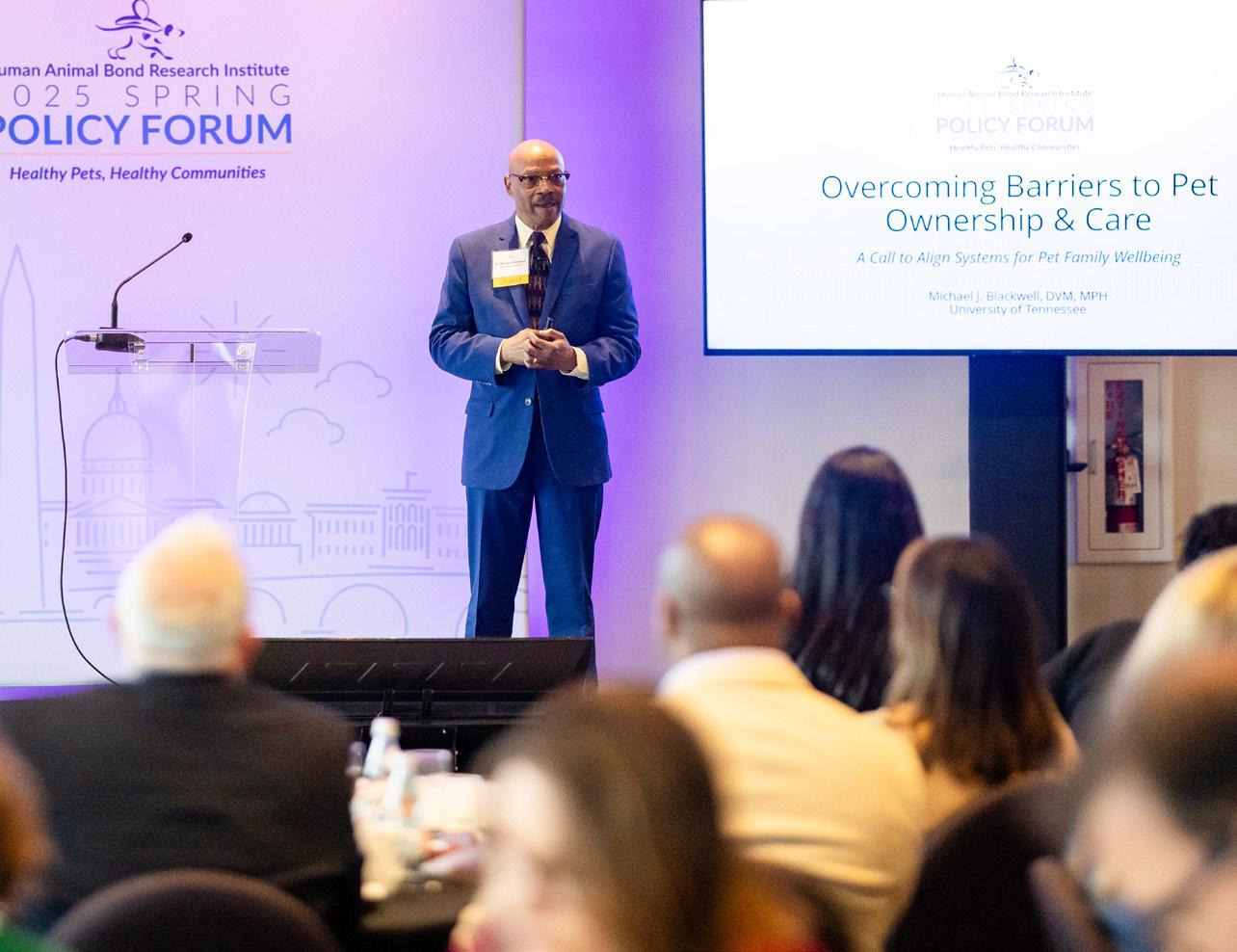
AlignCare, a national, community-funded, One Health system that helps care for pets and the well-being of the people who love them, exemplifies the kind of structural innovation necessary to better serve pet families. Rather than creating new institutions, AlignCare coordinates with human health providers, veterinary care professionals and social services to deliver integrated, sustainable care. Its focus goes beyond simply providing access to veterinary services and delivers family care through systems that talk to each other.
Dr. Blackwell emphasized that while funding these programs is not insignificant, the benefits are broad. By coordinating across economic sectors and aligning resources, the program creates savings and increases access to care where it is needed most.
For example, the overwhelming number of Americans living in financial precarity is staggering. Forty-two percent of households now fall into the ALICE category7 (Asset Limited, Income Constrained, Employed), representing people who are working, often in essential jobs, yet unable to afford basic household necessities. When you include those living below the poverty line, over half of U.S. households are financially vulnerable.8
It is precisely within these families that the human-animal bond is most critical and most at risk. For a single parent navigating eviction, or an older adult choosing between medication and pet food, the absence of systems that accommodate pet-inclusive realities can mean impossible choices. When emergency housing prohibits animals, families are often forced to separate, at a moment of peak vulnerability. These are not isolated stories; they are predictable outcomes of systems designed without animals or the full picture of family life in mind.
Through the One Health Society initiative, AlignCare connects human and animal health needs related to:
• Health and well-being
• Housing, transportation and infrastructure
• Social services
• Education, policy and research
To advance solutions, we must reimagine pet care as part of family care. When systems align, it becomes easier to respond to needs holistically, creating stronger outcomes for people, pets and communities. Programs like AlignCare generate data that informs policymakers and influences similar models in other communities, strengthening the bridge between underserved families and animal care.
As these integrated approaches gain traction, they redefine what’s possible across the fields of health, housing and human services. Now, the opportunity is to move from exception to expectation, where pet-inclusive is the standard. The question is no longer if we should bridge the gap between human and animal services, but how fast are we willing to build that bridge, together?
The state of pet-friendly housing in the American economy is evolving. The Animal Policy Group (APG), in partnership with the American Pet Products Association (APPA), is committed to removing barriers to pet ownership by addressing the access to the housing problem across the nation.
Katie Jarl, vice president of government relations for APG, relayed that access to pet-friendly housing is challenging. Based on Pet Inclusive Housing Initiative research, about 72% of renters say pet-friendly housing is hard to find, and 59% said it’s too expensive. While 76% of property owners or operators say their properties are pet friendly, only 8% are free of all breed, weight and number of pet restrictions, placing significant limitations on pet owning renters.9
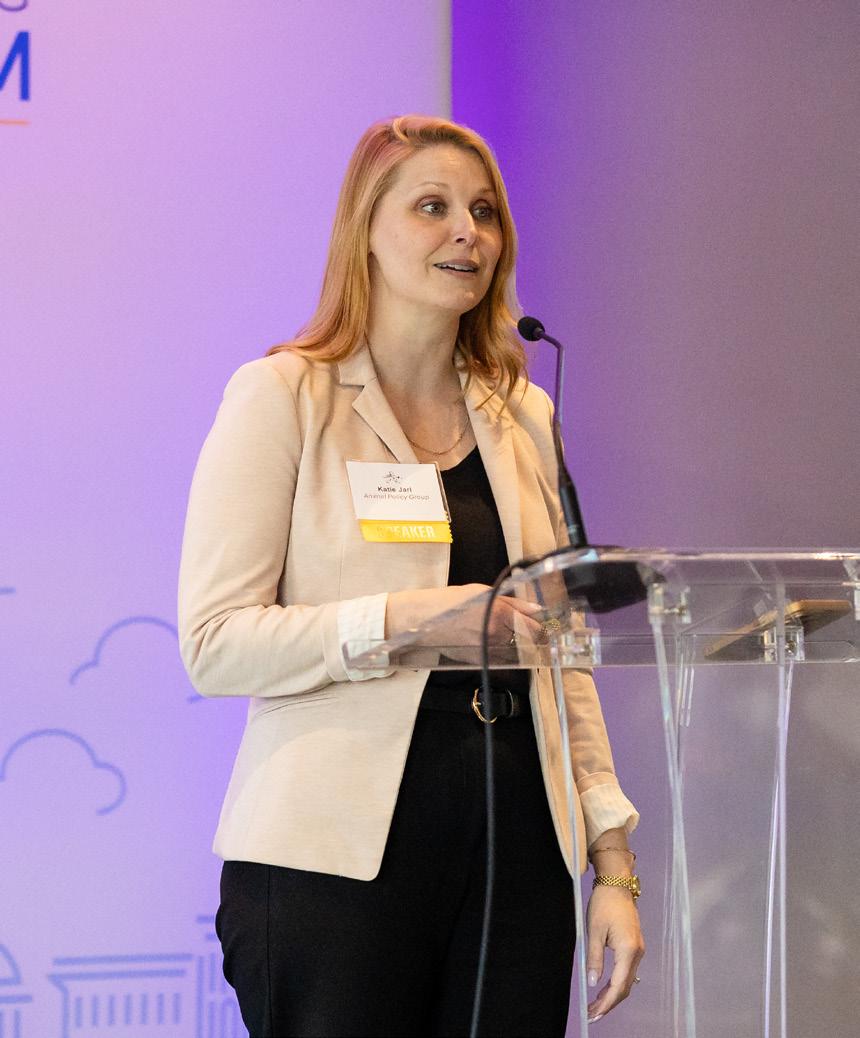
Alleviating the financial burdens tied to accessing pet-friendly housing can help keep people and pets together. The results are clear: in 2024, approximately 1.7 million dogs and cats entered shelters across the nation due to owner surrenders.10 Many of these owner surrenders are likely related to housing challenges. According to one survey, 23% of respondents cited housing11 restrictions as a reason for surrendering their pet and another 19% reported financial difficulties being the reason.
In June 2025, Denver’s District 11, an area with a significant population of residents in subsidized housing, will take part in a first-of-its-kind pilot program in partnership with the APG and the University of Denver’s Institute for Human-Animal Connection (IHAC.)
The program is designed to support housing access for pet owners facing financial barriers by:
• Assisting up to one hundred individuals struggling to pay pet deposits when securing rental housing,
• Providing direct financial relief to help keep people and their pets together during critical housing transitions, and
• Serving as a replicable model for other municipalities aiming to address housing insecurity and pet retention.
The IHAC will lead the data collection and evaluation efforts and administer surveys to program applicants throughout the pilot. These insights will help assess the program’s effectiveness, identify areas for improvement and inform long-term policy strategies.
This pilot will initiate a coalition of city agencies, including the Denver Department of Public Health and Environment, Denver Animal Shelter and Denver’s legal aid services, as they’ll partner to ensure the pilot’s outreach, impact and operational success.
In 2024, the APG collaborated with a broad coalition of advocates, policymakers and community leaders in Washington, D.C., to support the passage of the Pets in Housing Amendment Act of 202412, a groundbreaking piece of legislation aimed at increasing access to pet-friendly housing for renters and vulnerable populations.
This comprehensive policy included key provisions:
• Limiting pet deposits to $300 to reduce financial barriers for pet-owning renters.
• Capping monthly pet rent at $25, helping to keep housing more affordable for families with pets.
• Prohibiting breed, size and weight restrictions, eliminating arbitrary and discriminatory rental policies that disproportionately impact low-income pet owners.
• Mandating that at least one low-barrier shelter in D.C. must accommodate individuals experiencing homelessness with pets, ensuring that people are not forced to choose between shelter and their companion animals.
The Act was passed with broad support at the end of 2024, marking a major victory for pet-inclusive housing policies.
The APG has established a variety of partnerships that range from advocating for pet-friendly policies to providing financial support for pet owners. Their work continues with targeted outreach and includes identifying unique solutions, including drawing from discretionary funds and engaging with local and regional government officials.
In the near term, the following cities have expressed interest in working on pet-friendly housing initiatives or implementing financial solutions for pet owners:
• Houston, Texas
• Laredo, Texas
• Maui, Hawaii
• Phoenix, Arizona
• Portland, Oregon
• San Antonio, Texas
• San Francisco, California
7 United For ALICE. (2025). “The State of ALICE in the United States.: 2025 Update on Financial Hardship.” https://www.UnitedForALICE.org/National-Overview
8 Cepa, K et. al. (2023) Financial Health Pulse® 2023 U.S. Trends Report Rising Financial Vulnerability in America. https://finhealthnetwork.org/wp-content/uploads/2023/09/2023-Pulse-U.S.-Trends-Report-Final.pdf
9 Michelson Found Animals Foundation and HABRI. 2021 Pet-Inclusive Housing Report. https://www.petsandhousing.org/2021-pet-inclusive-housing-report/
10 Shelter Animals Count (2024). 2024 Annual Analysis. https://www.shelteranimalscount.org/wp-content/uploads/YearEndReport_3.13_Website_FINAL.pdf
11 Hill's Pet Nutrition (2024). 2024 State of Shelter Pet Adoption Report. shelter-equity-state-of-pet-adoption-2024.pdf
12 D.C. Law 25-308. Pets in Housing Amendment Act of 2024. https://code.dccouncil.gov/us/dc/council/laws/25-308
13 Cepa et al., (2023)
In Ohio, the APG built a coalition of local animal shelters and national organizations to work with the Ohio Housing Finance Agency to request an update to the qualified allocation plan program. This update would offer developers of low-income-housing tax credit points for including petfriendly accommodations in their properties. The Ohio Homebuilders Association submitted a letter expressing their support for the program, bringing another influential economic partner into the fold.
Access to pet-friendly housing remains one of the most persistent and preventable barriers to keeping people and pets together. Data shows that while most property managers allow pets, very few offer housing without pet-related restrictions and affordable pet-inclusive options, which pose significant barriers for pet families.13 The policy examples highlighted by Jarl and advocated by the APG can have an impact on housing stability and family unity. Successful cross-organization support for initiatives to remove housing barriers is grounded in the powerful science and evidence of the benefits of the human-animal bond. At state, city and national levels, the APG is demonstrating how research and data can drive change to address challenges and remove barriers for pet families.
In March of 2025, HABRI and its partners collaborated to re-introduce H.R. 1842, the People and Animals Well-being (PAW) Act, with co-sponsors U.S Congressmembers Claudia Tenney (NY-24) and Deborah Ross (NC-2). This bipartisan bill proposes to help pet owners and individuals with service animals, including our nation’s veterans, with additional means to pay for veterinary care.
Key features of the legislation include:
• Allowing up to $1,000 of HSA or FSA funds to be used for veterinary care or a pet health insurance plan for a pet annually.
• Permitting any amount of HSA or FSA funds to be used for veterinary care or a pet health insurance plan for a service animal.
• Helping veterans with PTSD, and all people with disabilities, care for their service animals by ensuring that the IRS relies on an up-to-date, existing Federal definition of “service animal” for HSA and FSA expenses that includes animals trained to assist people with both physical and mental disabilities.
Rep. Deborah Ross provided a message of support during the policy forum, emphasizing her passion for her pets and her longstanding support of animal issues as a state legislator and now as a national representative. Rep. Ross recognizes the financial barriers that can accompany pet ownership related to accessing veterinary care, and through this legislation, is working toward offsetting those costs when possible.
HABRI is proud to support this important legislation, which represents the kinds of policies that can make a real, immediate difference for pet families, improving health and saving lives.
When people are forced to choose between basic needs and the pets they love, the impact goes beyond individuals to community and societal health. But when policies and systems recognize that pets are family by removing barriers and taking pets and their care into account, the results are transformative. Through compassion, coordination and implementation, the humananimal bond can be protected and preserved for those most at risk. These dynamic presentations at the HABRI Spring Policy Forum show that solutions to bridge the gap between pet and human services are being implemented and can serve as models for healthier, more supportive communities.
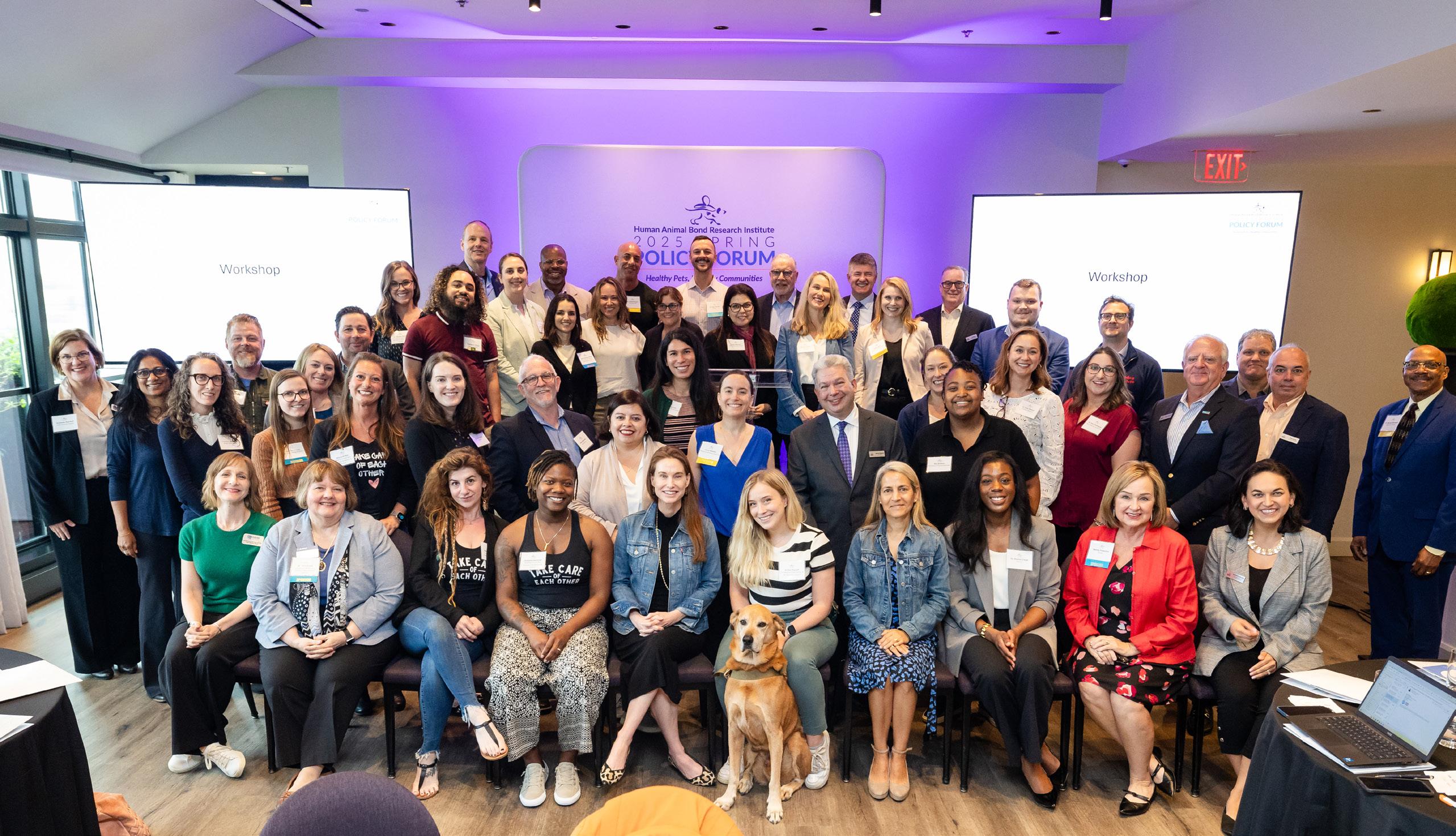
The HABRI Spring Policy Forum sought to inspire meaningful dialogue, foster collaboration and drive action among key stakeholders dedicated to advancing the science and public understanding of how healthy pets contribute to healthy communities.
Multifaceted collaborations between public, non-profit and private entities are essential to advancing policies, initiatives and projects that protect the human-animal bond and create frameworks for equitable pet ownership to thrive. Improving access to care and integrating pet care into human services will be possible when we have clear, persuasive data that illuminates both the scope of the issue and the necessary solutions. First emphasized by Dr. Stewart in his keynote, it is imperative that we recognize the personal stories and strong bonds between humans and animals. These stories, particularly when paired with the science and data supporting the human-animal bond for improved health and well-being, are necessary to influence the creation of programs and the implementation of policies that integrate pet and human services. Only then can we remove barriers and better support humans alongside their pets.
Our goal is to demonstrate how scientific research and data lay the groundwork for advancing solutions to overcome the barriers related to pet ownership and care. Key stakeholders and supporters must continue collaborating and partnering to collect data, advance best practices and policies, and educate those in the pet care and community-based programming fields about their models so they may be replicated and built upon. No single organization is equipped to tackle the challenges before us, and bringing passionate, compelling, diverse perspectives together creates a space to learn from each other, celebrate progress, share insights and ideas, and form new collaborations.
Thank you to all the contributors and participants of the HABRI Spring Policy Forum, and to our readers of this report. We hope this publication provides valuable information, inspiration and support for your work in serving pets and pet families. Know that HABRI and its many supporters in the pet care community remain dedicated to this important cause and to helping create a healthier, pet-inclusive society.
The HABRI Spring Policy Forum would not be possible without the support of its sponsors. Along with HABRI’s partners, these companies and organizations are committed to supporting well-being and equitable opportunities for pets, families, care providers and everyone who can benefit from the research-backed benefits of the human-animal bond.
The American Pet Products Association (APPA) is a membership organization focused on business, relationships and innovation. APPA is a leading industry association representing more than 1,000 pet product manufacturers, importers and suppliers of pet care products. APPA has played a chief role in driving and developing significant programs designed to strengthen the industry, increase pet ownership and build awareness of the joys and health benefits of pet ownership, including its founding support for HABRI.
For more information, please visit americanpetproducts.org

As the pet industry’s first trade association, the World Pet Association (WPA) is a leader in shaping the industry for close to 70 years. The member-based organization cultivates a healthier, more collaborative pet retail community where businesses of every breed can thrive. WPA’s mission to seek, share and inspire has led them to creating some of the largest and most sought-after trade events and educational programs connecting members of the field worldwide.
For more information, please visit worldpetassociation.org
The AVMA is the nation’s leading advocate for the veterinary profession. AVMA protects, promotes and advances the needs of all veterinarians and those they serve, and is committed to advancing the shared interests, values and goals of its 105,000 members while striving to improve the health and well-being of animals, humans and the environment we share.
As part of its longstanding commitment to the human-animal bond, the AVMA produced some of the first educational materials on this subject for veterinarians and the public. The AVMA Steering Committee on Human-Animal Interactions advocates for the human-animal bond and works to develop policies and resources in specific areas, such as guidance for veterinary hospice and improving access to rental housing for pet owners.
For more information, please visit avma.org
Petco Love is a national nonprofit aimed at improving the lives of pets and their people. Through its many programs, Petco Love creates families through pet adoption, reunites lost pets with their owners and offers access to veterinary care. Since its founding in 1999 as the Petco Foundation, Petco Love has empowered animal welfare organizations by investing $375 million in adoption and other lifesaving efforts. The organization has helped find loving homes for more than 6.75 million pets in partnership with Petco and organizations nationwide. Petco Love champions initiatives to keep pets healthy by providing free pet vaccines and affordable treatment options, and its innovative Petco Love Lost is helping to reunite the 1 in 3 pets that go missing every year with their families.
For more information, please visit petcolove.org

PetSmart Charities is a leading funder of animal welfare in communities across North America for more than 30 years. Through its programs, PetSmart Charities supports pets and their families through adoption, access to veterinary care, pet hunger initiatives and providing disaster response. Since its founding in 1994, PetSmart Charities has granted over $600 million to change-making organizations and community partners that advocate and care for the well-being of pets and all who love them.
For more information, please visit: petsmartcharities.org

Wallis Annenberg PetSpace is an innovative community destination in Playa Vista, California, dedicated to promoting and strengthening the human-animal bond. Opened in 2017, the space combines pet adoptions, community events and educational programming in a uniquely interactive environment for both people and pets. Through a focus on education, science and collaboration, PetSpace reimagines traditional approaches to pet adoption and care. As part of Wallis Annenberg’s broader philanthropic mission, the center reflects a commitment to improving the well-being of individuals and communities in Los Angeles and beyond.
For more information, please visit: annenbergpetspace.org
Zoetis is the world’s leading animal health company with a purpose to nurture the world and humankind by advancing care for animals. With more than 70 years of innovating ways to predict, prevent, detect and treat animal illness, Zoetis continues to stand by those raising and caring for animals worldwide – from livestock producers to veterinarians and pet owners. The company’s leading portfolio and pipeline of medicines, vaccines, diagnostics and technologies make a difference in over 100 countries.
For more information, please visit: zoetis.com
STEVEN FELDMAN
President sfeldman@habri.org
LINDSEY BRAUN
Vice President, Research & Operations lbraun@habri.org
SAMANTHA BARZILAY
Manager of Events & Engagement sbarzilay@habri.org
